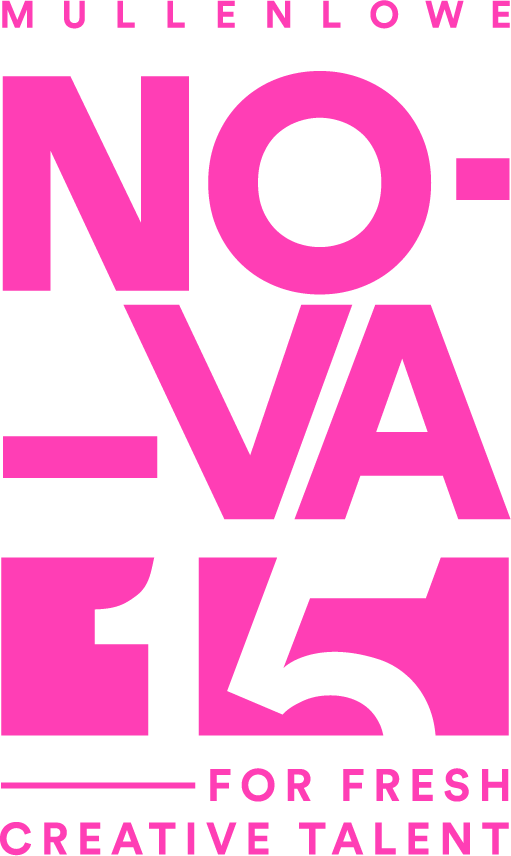Ideas the World Needs More Of

Ahead of the award ceremony where the winner of this year’s MullenLowe NOVA Award will be revealed, MullenLowe UK Strategy Director Hannah Hayes-Westall looks at this year’s shortlist and explores how empathy and compassion are driving the students to deliver ideas the world needs more of.
If you hadn’t already noticed, in some ways at least, the kids really are alright. A sea of reports highlighting their mental health challenges, complete with heartbreaking statistics, sometimes overlooks the exceptional nature of a rising generation of creative thinkers, who despite having their teenagedoms interrupted by Covid, have become the most educated generation in history, and remarkably self aware. It should not come as a surprise then that the shortlist for the 13th annual MullenLowe NOVA Awards, which celebrate the creativity of every discipline at Central Saint Martins showed that amidst a collection of the most diverse projects conceivable, empathy and compassion are the themes preoccupying student creators.
‘An empathetic process’
In an extraordinary feat of empathetic process and imagination, Liz Ebengo on the MA Materials Futures course took ideas about epigenetics, and the ability of trauma to change DNA, and applied it to a technique to conserve the cultures of countries that will soon be lost to the sea. Presented in a large museum vitrine a single banana seed is shown under a magnifying glass, in recognition of both its uniqueness, and the complicated notions of ownership it embodies. Because this seed is very unusual. Its DNA has been altered to act as a recording of one of the last banana farmers on Vanuatu, a Pacific island nation expected to be lost to the sea within Ebengo’s lifetime.
Using specialist equipment the farmer’s story can be replayed as audio and, should the seed be planted, will be replicated in every subsequent generation of banana, creating what Ebengo calls subtitles for future generations to understand this moment. As a cultural conservation technique it is a beautiful solve to the shocking truth that climate change legislation at present currently protects seeds more than it does people.

Centring human experience and the emotional impact of events also informs the work of another student on the MA Materials Futures course, Arianna Pezzano. Pezzano’s project BioProstgesis is a beautiful reimagining of the use of keratin extraction by electron spinner to address the prostheses needs of people being treated for breast cancer. Interviews had shown her that people who had gone through mastectomy often felt the loss of their breast and nipple affected their sense of self, and existing prosthetic solutions were inadequate.
Using keratin extracted from a patient’s own hair Pezzano creates a material that can be used alongside an individual cast of the pre-surgery or remaining nipple, or can be spun into filament for use in 3D printers. Whilst currently used only to create prostheses, themselves a vital tool as people decide how they feel about their post-surgery bodies, Pezzano’s hope for the technology is that it will eventually become medically licensed for surgical attachment, as a bio-identical prosthetic nipple has a much reduced chance of rejection by the body.

‘We have much more in common than we think’
Many of the most poetic are projects centred around interiority, and recognition of shared emotions and humanity. For George Harvey, a film-maker and digital artist on the MA Fine Art Digital the loss of six close family members in just two years, led to an exploration of time and perceptions of existence,the difference between clock-time and the natural rhythms within us all and the waves of time and energy generated by a crowd moving together. His off-site installation of his work Entities was an installation of films showing the slowed and manipulated forms of 6 performers moving, shown life-size on 12mx3m digital screens in an empty warehouse for one day only.

Also drawing on the shared experience of time and its passing is the elegant and emotional animation Time Goes, by Lily Jenkins, an artist on the MA Character Animation course, whose years long habit of sketching in public created an archive of sensitively observed portraits of strangers going about their days. Extended with up to 1000 hand drawings for each scene, the animation creates a melodic tempo which tells the stories of her subjects on their own terms.
https://vimeo.com/834821864
Sharing the stories of strangers with empathy is also central to the film work created by Soe-Myat Noe, a student on the BA Graphic Design course. Delving into the recent experience of being treated for cancer as a young adult, and the complexities and nuance of living in a society which understands the tropes of youth illness in a very limited way. Her response, ‘Cut it, burn it and poison it’ is an emotional film that draws on the communication between her and her mother, opening up the shared experience of the trauma created by the disease. Reflecting on her work, she highlighted the commonalities of her experience ‘When we share our story we open up conversation and people share their own stories. We have much more in common than we think.‘
Universal themes of loss and transformation in its aftermath form the core of Song of the Tadpole, a charming narrative animation by Victor Healey, on the MA Character Animation course, a project informed by his own experiences, which uses a digitally rendered technique to tell the stories of a girl and her talented pet tadpole growing up and apart.

With a similar whimsy, Annette Levin, of the BA Textile design course, explores the light-hearted absurdity of living as a girl. Challenging narratives of victimhood and trauma her work, featuring innovative techniques such as the bonding of second hand knitwear onto cotton.

In contrast, painful experience and feelings spurred Yibei Liu, an artist on the BA Ceramic Design course. Her sculptural clay works are personal interpretations of the feeling of the human condition, created after she realised how common it is for people to hide their negative emotions in their subconscious and challenged herself to use her work to face up to her own negative emotions.

With an ambition to start conversations about mental health and translate her own experience into healing for others, Liu is in good company, alongside other artist students like Bocen Zhou, of the BA Jewellery Design course. Zhou’s exploration of the comforts and constrictions of traditional Chinese family life includes superfine silver-plated filament wire woven into the shapes of hands within a soft wool sweater, finger guards, and cardigan plackets, and contains some themes that also appear in the work of designer Ása Bríet Battaberg, a student on the BA Fashion: Womenswear course. Battaberg has drawn on her Icelandic heritage and sense of her home being out of time to create pieces made from new weaving and spinning techniques, many of which she developed for the project and which are made from pre-existing materials.


Bríet Battaberg’s own grandfather’s suits have been broken down, turned into yarn and created new fabrics, while sheep from her family farm have provided wool used in the collection, creating as she says, a sense of ‘time made tangible’.
Creating the most tangible expressions of solidarity and connection, the BA Product Design student Luke Talbot has found an extraordinary solution to one of the primary needs of people experiencing homelessness in major UK cities. Speaking with people experiencing homelessness Talbot found that mobile phone connection is a true lifeline, yet opportunities to charge phones are few and far between, creating periods of acute hardship.
Looking at simple dynamos, Talbot realised that people could be empowered to charge their own phones using the wide network of public bike rental services. His solution is a magnetic phone charger that can be attached to a stationary Santander (in London) bike, which can be pedalled backwards whilst still in the stand without incurring an unlock fee. The components, aside from a bespoke dynamo, are all freely available or 3d printable at low cost making this a viable product for shelters to distribute to clients directly.
‘Acknowledging that we are not all that we think we are’
An ambition to decentralise the human experience in our view of the world brings with it a radical compassion in its vision of a different future. For Thuy Duong Nguyen on the MA Fine Art course this means a deep dive into the materiality of the built and rural environment of Hanoi, and thought provoking sculptures taken from culturally significant materials like rice paper, that highlight the loss of the natural world.

Taking a different approach, BA Jewellery Design student Miles Robinson has reflected on the hubris of specism, using ideas reflective of Duchamp’s ready-mades to create impossible tools, jewels made of beer bottles and elegant door stopper necklaces, all using materials that already exist.

Focusing on the future use of resources used in creative work was the jumping off point for Eden Brader-Tan, a student on the BA Fashion Design: Womenswear, and an idea that created a vital moment across global social media. Models walked the runway in clothes still attached to the bolts of fabric that formed them.
Technically challenging, it was also an arresting visual that Brader-Tan intended as a way to connect people emotionally to the idea of how to create a sustainable garment that has a legacy by building in surplus fabric for the needs of an unknown upcycler in the future.

In all of this work, what we find is a kind of compassionate optimism that recharges ideas about a cynical and despairing generation. For the creative industries who will go on to absorb the ideas of these incredibly talented student, it’s a moment of hope and excitement. These are ideas that are not just bold, but practical, pragmatic, and human. These are the kind of ideas that the world needs more of.
This article was originally published on Mediacat.







